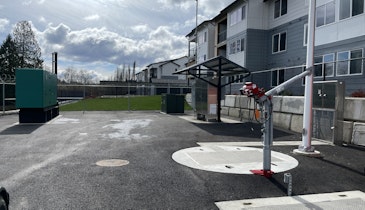Last Sept. 1, a new state statute went into effect that relaxes the onsite inspection requirements. It states that rural residents may maintain the systems instead of relying on service companies to inspect them three times a year. Furthermore, residents no longer have to file periodic county reports to prove that the systems are working properly.
Collin County commissioners are debating whether to pass an ordinance requiring rural homeowners to be trained in how to maintain onsite systems and report test results to the county. Some North Texas counties, including Dallas, Denton and Ellis, already have passed local rules that override the state guidelines. Collin County has more than 12,000 onsite systems, while Dallas County has about 700 systems.
The new law resulted from homeowners complaining to legislators that some service companies did shoddy work. Others complained about the $200-a-year maintenance fee. The Texas Commission on Environmental Quality is not making a recommendation on whether counties should enact local inspection requirements.
Wisconsin
A bill introduced in the Senate will prevent county regulators and other government employees with duties related to onsite systems from installing, maintaining, repairing, selling, or designing systems and performing soil tests. The goal is to prevent these employees from competing against the people they regulate.
As of Jan. 1, a tracer wire or an equivalent means of locating is required when installing all non-metallic sanitary, storm, and water laterals that connect to municipal mains. The suggested installation method is to bury at least 12-gauge, plastic-coated copper wire within 6 inches and directly above the top of the pipe.
The wire should be brought to the surface every 400 feet and protected at those access points. Tracer wire for sanitary sewer is green, storm sewer is brown, potable water is blue, and reuse water is purple. Installers should check with municipalities for local ordinances concerning tracer wire installation.
The state’s new budget continues the Private Sewage System Repair and Replacement Grant Program that allocates $3 million annually to low-income residents.
The budget also increases vehicle registration fees for heavy trucks (more than 4 tons) by 30 percent. Before Gov. Jim Doyle signed the budget, Wisconsin Onsite Waste-water Recycling Association executive director Patrick Essie spoke with the governor’s staff about how the increases would affect the industry. Current fees of $119.50 (5 tons) to $1,969.50 (40 tons) increased to $155 and to $2,560 on Jan. 1, 2008.
Ohio
The Household Sewage Treatment Study Group, created in a House bill that suspended the state’s current onsite rules until July 2009, is rewriting legislation mandating sophisticated and costly onsite systems. Advocates are seeking new rules that protect the environment without causing a financial burden to property owners.
The group will examine the situa-tion throughout 2008, then deliver a report to state leaders at the end of the year. Until then, counties will follow onsite regulations in effect before Jan. 2007, when the more stringent rules took effect.
“There are more than 1,000 cases where onsite rules are causing an economic hardship to landowners,” says Tim Grendell, who represents Ohio’s 18th Senate District. “In some cases, new systems cost more than the houses they will serve, making people leery to build homes.” Ray Saporito, Ashtabula County health commissioner, said he is certain some building permits in the county were not pulled because of uncertainty over septic system regulations.





